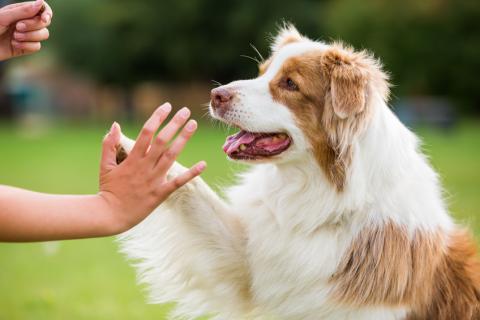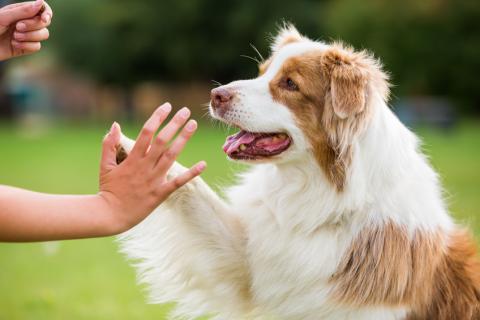
Published on April 14 by Julia
It’s a common saying that you can’t teach an old dog new tricks—but dog owners and trainers know this is far from the truth. While older dogs may take a little more time and patience, they’re perfectly capable of learning new behaviors and commands. In fact, training can be a great way to keep their minds sharp and bodies active.
There are many reasons to teach your senior dog new tricks:
Plus, older dogs are often calmer and more focused than energetic puppies!

Older dogs may learn more slowly, especially if they’ve never been trained before. Use positive reinforcement like treats, praise, and affection. Keep training sessions short and upbeat to avoid fatigue or frustration.
Before starting new training, make sure your dog is physically able. Some tricks may be tough for dogs with arthritis or vision/hearing issues. Tailor tricks to their capabilities—like teaching a nose boop instead of a jump.
If your dog already knows some commands, use those as a foundation. For example, if they know “sit,” you can teach “shake” from that position. Familiar routines make learning easier.
Aim for 5–10 minutes at a time, once or twice a day. Senior dogs can tire more quickly, and shorter sessions help keep them engaged without stress.
Stick to simple verbal commands and hand signals. Speak clearly and keep your cues consistent to avoid confusion.
Every little step counts. Did they lift a paw? Touch a target? Hold a position a second longer? Praise them like they just won the gold medal.

Here are a few gentle, senior-friendly tricks:
Teaching an old dog new tricks isn’t just possible—it’s rewarding. With patience, love, and a few tasty treats, your senior pup can keep learning well into their golden years. Every training moment is a chance to connect and keep your dog’s spirit bright.
Discover More Content





